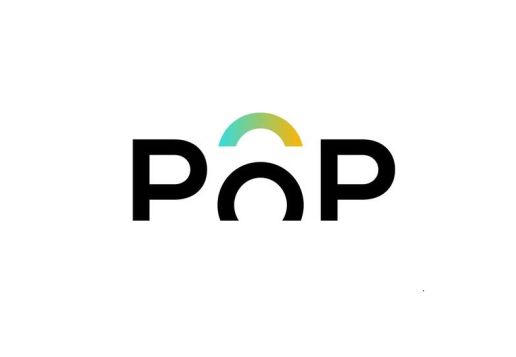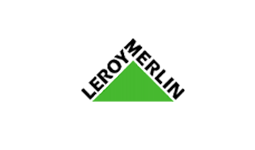
The e-invoicing process called FATOORA applies to taxable persons who are residents in the Kingdom of Saudi Arabia, as well as to the customers or any third parties who issue a tax invoice on behalf of a taxable person who is a resident in the Kingdom according to the VAT Implementing Regulation.
First Phase of the law, effective as of December 4, 2021, requires companies to generate tax and simplified tax invoices, typically issued in B2C transactions, in an electronic, structured format, and to store them electronically in a compliant manner.
The generated e-invoices must contain all mandatory fields required by VAT regulations, including the buyer’s VAT number (if the buyer is a registered VAT taxpayer). A QR code is also required, but only for simplified tax invoices. For “standard” tax invoices, including a QR code is optional.
The second phase of integration, focused on e-invoice transmission, began on January 1, 2023, and is currently ongoing.
 2023
2023The first wave companies that are obliged to connect to ZATCA are those based on the revenue subject to VAT for 2021 exceeding (3 billion) SAR
Taxpayers obliged to connect to ZATCA have revenues subject to VAT surpassing SAR 0.5 billion
Taxpayers obliged to integrate their e-Invoicing systems with the FATOORA platform are those with VATable income exceeding 250 million Saudi Rials
Taxpayers obliged to integrate their e-Invoicing systems with the FATOORA platform are those with VATable income exceeding 150 million Saudi Rials
Taxpayers obliged to integrate their e-Invoicing systems with the FATOORA platform are those with VATable income exceeding 100 million Saudi Rials
 2024
2024Taxpayers obliged to integrate their e-Invoicing systems with the FATOORA platform are those with VATable income exceeding 70 million Saudi Rials
Taxpayers obliged to integrate their e-Invoicing systems with the FATOORA platform are those with VATable income exceeding 50 million Saudi Rials
Taxpayers obliged to integrate their e-Invoicing systems with the FATOORA platform are those with VATable income exceeding 40 million Saudi Rials
Taxpayers obliged to integrate their e-Invoicing systems with the FATOORA platform are those with VATable income exceeding 30 million Saudi Rials
Taxpayers obliged to integrate their e-invoicing systems with the FATOORA platform are those whose VATable income exceeded 15 million Saudi Rials in 2022 or 2023
Taxpayers obliged to integrate their e-invoicing systems with the FATOORA platform are those whose VATable income exceeded 10 million Saudi Rials in 2022 or 2023.
 2025
2025Taxpayers obliged to integrate their e-invoicing systems with the FATOORA platform are those whose VATable income exceeded 7 million Saudi Rials in 2022 or 2023.
Taxpayers obliged to integrate their e-invoicing systems with the FATOORA platform are those whose VATable income exceeded 5 million Saudi Rials in 2022 or 2023.
Taxpayers obliged to integrate their e-invoicing systems with the FATOORA platform are those whose VATable income exceeded 4 million Saudi Rials in 2022 or 2023.
Taxpayers obliged to integrate their e-invoicing systems with the FATOORA platform are those whose VATable income exceeded 3 million Saudi Rials in 2022 or 2023.
Taxpayers obliged to integrate their e-invoicing systems with the FATOORA platform are those whose VATable income exceeded 2.5 million Saudi Rials in 2022 or 2023.
Taxpayers obliged to integrate their e-invoicing systems with the FATOORA platform are those whose VATable income exceeded 2 million Saudi Rials in 2022 or 2023.
Taxpayers obliged to integrate their e-invoicing systems with the FATOORA platform are those whose VATable income exceeded 1,75 million Saudi Rials in 2022 or 2023.
Taxpayers obliged to integrate their e-invoicing systems with the FATOORA platform are those whose VATable income exceeded 1,5 million Saudi Rials in 2022 or 2023.
Taxpayers obliged to integrate their e-invoicing systems with the FATOORA platform are those whose VATable income exceeded 1,25 million Saudi Rials in 2022, 2023 or 2024.
Taxpayers obliged to integrate their e-invoicing systems with the FATOORA platform are those whose VATable income exceeded 1 million Saudi Rials in 2022, 2023 or 2024.

All taxable persons (excluding non-resident taxpayers) and third parties issuing tax invoices on behalf of a taxpayer that is subject to VAT are obliged to send e-Invoices.

Starting with the Integration phase, the invoice must be in XML format in order to be shared with the authority using the API for clearance and reporting.

Electronic invoices may be stored in a server on-premises in the KSA or in the cloud according to the provisions in VAT Law, VAT Implementing Regulation, E-Invoicing Regulation and resolutions and all other relevant Laws in KSA.

It is required to implement security measures in the form of an electronic seal, which is created using cryptographic algorithms.
Comarch is officially certified by the ZATCA as a Qualified E-invoicing Solution Provider in the Kingdom of Saudi Arabia. This certification enables Comarch to support the exchange of invoices through the ZATCA platform, including compliance with B2C reporting requirements.

We have 20+ years of experience in carrying out various EDI, e-invoicing, and other document exchange projects around the world. In those years, we have successfully connected more than 130,000 entities from over 60 countries.
Full compliance with the latest data exchange regulations and modern data transfer standards
Applying new technologies and IT solutions in order to streamline workflows and automate activities and procedures
Tailor-made solutions based on processes specific to each company – own road map and a suitable pace of changes
Highest level of security for all sensitive and important company data
For the generation phase (December 4th 2021), there is no specific format required to generate and store the e-Invoices. Starting with the Integration phase, the invoice must be in XML format in order to be shared with the authority using the API for clearance and reporting.
ESAL is a national platform for e-invoicing exchange in Saudi Arabia.
The supplier is responsible for the accuracy of the invoices issued, and for implementing security measures and adequate controls to prevent tampering with records stored electronically. It can be done by an electronic stamp which is created via cryptographic algorithms.
Persons subject to the E-Invoicing Regulation may store their electronic invoices in a server on-premises in the KSA or in the cloud as per their solution requirements and storage requirements, and according to the provisions in VAT Law, VAT Implementing Regulation, E-Invoicing Regulation and resolutions and all other relevant Laws in KSA.
E-invoicing has been obligatory in Saudi Arabia since December 4th, 2021.
All taxable persons (excluding non-resident taxpayers) and third parties issuing tax invoices on behalf of a taxpayer that is subject to VAT are obliged to send e-Invoices.

Make sure your business meets international standards with the Comarch e-Invoicing platform, trusted in more than 60 countries. Enjoy hassle-free integration and continuous compliance updates.


























